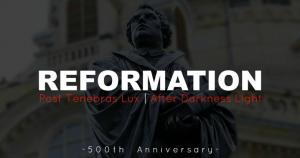I hope that the previous articles have been able to show beyond any doubt, what these councils, catechisms, and confessions teach concerning justification and the many differences between the Roman Catholic and the Historic Protestant views. We now turn to what the Apostle Paul has to say on the matter. I will defend these two things: 1) that Paul teaches justification by faith alone apart from works, and 2) that Paul teaches that in justification Christ’s righteousness is imputed to us. In order to do this I will deal with three texts, Romans 3:19-4:12, Romans 5:15-19, and 2 Corinthians 5:17-21[1].
 Romans 3:19-20 is the conclusion to the Paul’s discourse on the universality of sin, which he began in 1:18. In verse 19, Paul teaches that the law speaks to those under it, namely, the Jews, and therefore “every mouth” (πᾶν στόμα) is stopped and the “whole world” (πᾶς ὁ κόσμος) is held accountable to God. Paul is here arguing from the lesser to the greater: if the Jews, the chosen people of God who had been given the law, could not keep the law and are under sin’s dominion, then how much more are the Gentiles, who did not have the law, under sin.[2] Verse 20 supports the accountability of the whole world to God, “For by works of the law (ἔργων νόμου) no human being (πᾶσα σὰρξ) will be justified in his sight.” The meaning of the phrase “works of the law” is debated, however the best explanation of it is that it refers to general works done in obedience to the Mosaic Law. There is a close connection between the phrases “works of the law” and “works” in 3:27-4:8. In 4:1-8 “works” almost certainly means general obedience without specific reference to a certain kind of obedience, and it suggests the same meaning for “works of the law”, with which it is in parallel.[3] Douglas Moo says of the language of “every mouth may be stopped (φραγῇ), and the whole world may be held accountable (ὑπόδικος γένηται) to God,”
Romans 3:19-20 is the conclusion to the Paul’s discourse on the universality of sin, which he began in 1:18. In verse 19, Paul teaches that the law speaks to those under it, namely, the Jews, and therefore “every mouth” (πᾶν στόμα) is stopped and the “whole world” (πᾶς ὁ κόσμος) is held accountable to God. Paul is here arguing from the lesser to the greater: if the Jews, the chosen people of God who had been given the law, could not keep the law and are under sin’s dominion, then how much more are the Gentiles, who did not have the law, under sin.[2] Verse 20 supports the accountability of the whole world to God, “For by works of the law (ἔργων νόμου) no human being (πᾶσα σὰρξ) will be justified in his sight.” The meaning of the phrase “works of the law” is debated, however the best explanation of it is that it refers to general works done in obedience to the Mosaic Law. There is a close connection between the phrases “works of the law” and “works” in 3:27-4:8. In 4:1-8 “works” almost certainly means general obedience without specific reference to a certain kind of obedience, and it suggests the same meaning for “works of the law”, with which it is in parallel.[3] Douglas Moo says of the language of “every mouth may be stopped (φραγῇ), and the whole world may be held accountable (ὑπόδικος γένηται) to God,”
“The terminology of this clause reflects the imagery of the courtroom. “shutting the mouth” connotes the situation of the defendant who has no more to say in response to the charges brought against him or her. The Greek word translated “accountable” occurs nowhere else in the scriptures, but it is used in extrabiblical Greek to mean “answerable to” or “liable to prosecution” or “accountable.” Paul pictures God both as the one offended and as the judge who weighs the evidence and pronounces the verdict.”[4]
Paul now moves in verses 21-31 to show that all, both Jew and Gentile, are justified in the same way, namely, by faith.
In verse 21, Paul emphasizes that the righteousness of God has been revealed “apart from the law” (χωρὶς νόμου); it is not a righteousness that one can attain through the law and neither has it been revealed through the law, although the Old Testament points forward to it. Paul does not leave the reader ignorant of where the righteousness comes from, but says that this righteousness comes “through faith in Jesus Christ.” Whether the phrase “διὰ πίστεως Ἰησοῦ Χριστοῦ” (literally, through faith of Jesus Christ) is translated as a subjective genitive (through the faithfulness of Jesus Christ) or as an objective genitive (through faith in Jesus Christ), does not make much difference for my argument here, for either way, the righteousness διὰ πίστεως Ἰησοῦ Χριστοῦ is for “all who believe” (εἰς πάντας τοὺς πιστεύοντας.) or in other words – those who have faith. The righteousness cannot be separated from faith.
In verses 22b through 24, Paul again emphasizes that there is no distinction between Jews and Gentiles in both their sinfulness and the way of justification. It is significant for us here that Paul says that God justifies “by his grace as a gift” or “freely by his grace” (δωρεὰν τῇ αὐτοῦ χάριτι). This is what Paul picks up in 4:4-5, and I will say more about it when I come to those verses.
In verse 25, Paul draws on the Day of Atonement ceremony described in Leviticus 16, and describes Christ as the one whom God put on display as “a propitiation by his blood” (ἱλαστήριον…ἐν τῷ αὐτοῦ αἵματι). Both Schreiner and Moo note that “ἱλαστήριον” is strongly connected to the “mercy seat” in Leviticus 16, and argue for it to be translated as “mercy seat” and “sacrifice of atonement” respectively.[5] What is important here is that Christ is seen as the New Covenant fulfillment of the Day of Atonement. On the Day of Atonement the high priest would take two male goats from the people and cast lots over them. One goat would be sent into the wilderness and the other would be sacrificed as a sin offering and its blood taken into the Holy of Holies and sprinkled on the mercy seat. This ceremony shows the idea of expiation and propitiation, sin is both removed and payed for. Paul is saying that Christ is the fulfillment of this ceremony, and that He expiated sin and propitiated God’s wrath on the cross in order to “show [God’s] righteousness at the present time, so that he might be just and the justifier of the one who has faith in Jesus.”
Clearly, in Paul’s mind justification is closely tied to atonement. Sinners cannot be declared righteous without some payment being made for their sin. Paul is answering the question of how a righteous God could justify the unrighteous? He clearly justified believers in the Old Testament, and Paul says that Christ came to vindicate God’s righteousness. If Christ had not gone to Calvary then God could have been accused of unrighteousness, for He had “passed over” numerous sins of Old Testament saints. Therefore, when Christ came and died for sin, He vindicated the righteousness of God and showed that God will not merely look the other way and let sin slide, it must be paid for. The emphasis in these verses is not that God makes sinners righteous and justifies them on the basis of that righteousness, but that Christ pays the penalty for their sin so that when God declares believers righteous it is not legal fiction, their sin has been truly paid for.
In verses 27 through 31, Paul engages in a diatribe with a rhetorical opponent. His logic flows like this: 1) Boasting is excluded because 2) justification is by faith and not by works of the law. 3) God is one and is the God of both Jews and Gentiles, 4) therefore, He will justify both Jews and Gentiles by faith. Paul here intensifies the contrast between faith and works that began in 3:19-20 and will culminate in 4:4-5.[6] The implication is that if one could be justified by works of the law, then one would have a reason to boast. Moo states it well in his comments on verse 28,
As in 3:20, what is meant is not certain kinds of works, or works viewed in a certain light, but anything a person does in obedience to the law and, by extrapolation, anything a person does. This being the case, Luther’s famous addition of sola (“alone) to fide (“faith”) – in which he was preceded by others, including Thomas Aquinas – brings out the true sense intended by Paul. A serious erosion of the full significance of Paul’s gospel occurs if we soften this antithesis; no works, whatever their nature or their motivation, can play any part in making a sinner right with God.[7]
There is no compelling reason to believe that Paul leaves any room for other good works – not works done in obedience to the Mosaic Law – as the instrument of justification, alongside of faith. If one could be justified by other works, then boasting is not excluded, for one could boast of those works. By excluding works done in obedience to the Mosaic law – which was directly inspired by God, then surely we could not add any other good works to our faith as the instrument of justification, for these would be of even less use than those done in obedience to the Mosaic law.[8]
Other Articles In This Series:
- Reformation 500: Sola Fide and The Roman Catholic Church
- Reformation 500: Sola Fide and The Historic Protestant View
- Reformation 500: Sola Gratia to a World That Needs It
- Reformation 500: Sola Fide, The Apostle Paul and Romans 3-4
- Reformation 500: Is Sola Scriptura a Blueprint for Anarchy?
[1] Unless otherwise noted, all scripture quotations are from the ESV 2011. [2] Moo, Douglas. The Epistle to the Romans. Grand Rapids: Eerdmans, 1996, pg. 206; cf. Schreiner, Romans. Grand Rapids: Baker Academic, 1998. pg. 168 [3] Schreiner, op. cit., pg. 172-173 [4] Moo, pg. 205 [5] Schreiner, Romans, pg. 192-194. Cf. Moo, pg. 231-236 [6] White, James R. The God Who Justifies. Minneapolis: Bethany House, 2001. pg. 198 [7] Moo, pg. 250-251, quoted in White, The God who Justifies, pg. 200 [8] White, James R. The Roman Catholic Controversy. Minneapolis: Bethany House, 1996. pg. 149













